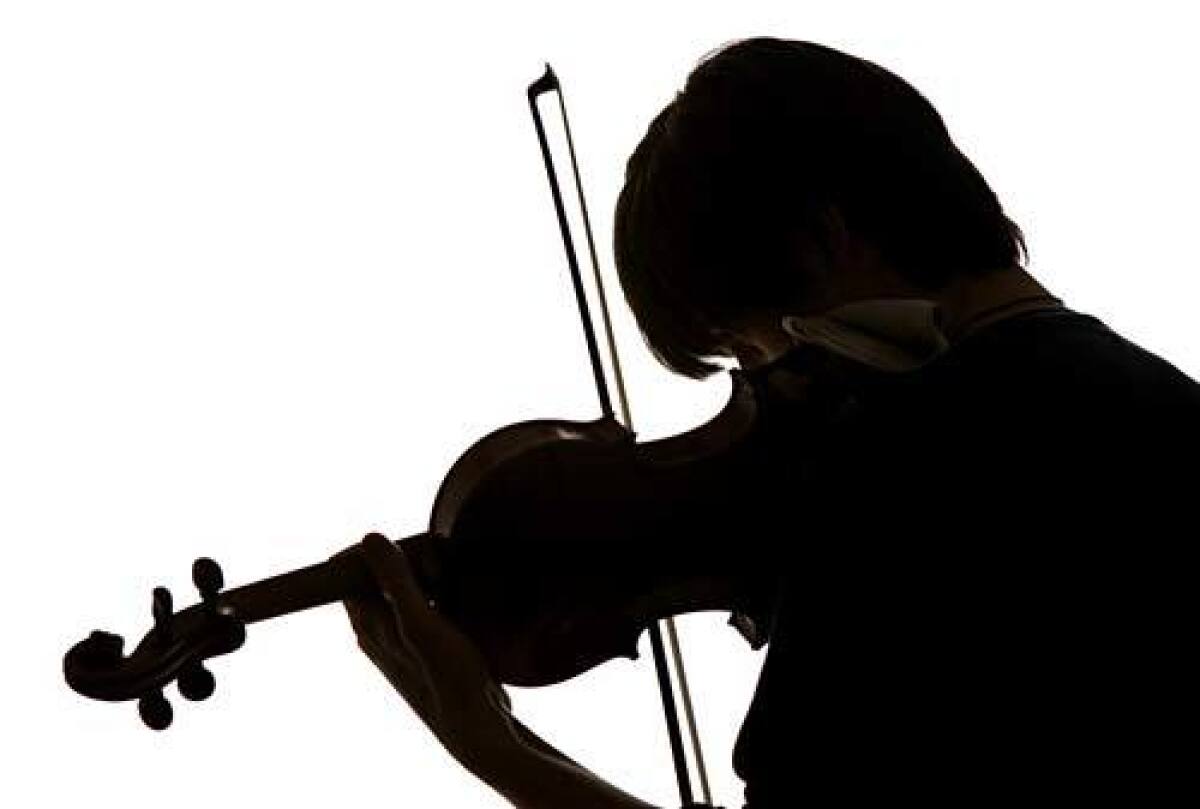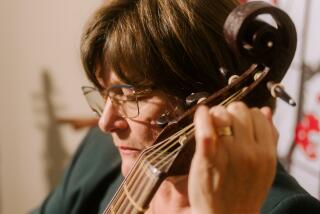The hope of music’s healing powers

Yes, yes, it hath charms to soothe a savage breast (or beast, if you prefer to repeat a common mistake). But researchers are finding that music may be an effective balm for many other afflictions: the isolation of conditions such as autism and Alzheimer’s disease, the disability that results from stroke, the physical stress of entering the world too early.
The hope of music’s curative powers has spawned a community in the United States of some 5,000 registered music therapists, who have done post-college study in psychology and music to gain certification. Active primarily in hospitals, nursing homes, special needs classrooms and rehabilitation units, music therapists aim to soothe, stimulate and support the development or recovery of abilities lost to illness or injury.
While music therapists use a mix of improvisation and proven techniques to help patients, neuroscientists are looking to uncover the scientific basis for music’s healing powers. They are trying to understand how music can help rewire a brain affected by illness or injury, or provide a work-around for injured or underperforming brain regions.
By doing so, they hope to better identify which patients might respond best to music and what musical techniques might best help them to regain lost or compromised function.
“Music might provide an alternative entry point” to the brain, because it can unlock so many different doors into an injured or ill brain, said Dr. Gottfried Schlaug, a Harvard University neurologist. Pitch, harmony, melody, rhythm and emotion — all components of music — engage different regions of the brain. And many of those same regions are also important in speech, movement and social interaction. If a disease or trauma has disabled a brain region needed for such functions, music can sometimes get in through a back door and coax them out by another route, Schlaug says.
“In a sense, we’re using musical tools to particularly engage certain parts of the brain and then teach the brain new tricks — new tools — to overcome an impairment,” he says.
Neuroscientists are exploring the role of music in treatment of some of the following:
Speech: For about 1 in 5 patients who suffer a stroke, difficulty with speech — aphasia — is a lingering effect. Schlaug and other researchers have found that by practicing to express themselves with a simple form of singing — something that sounds almost like Gregorian chant — aphasic stroke victims significantly improved the fluency of their speech compared with patients whose speech therapy did not include singing.
Schlaug says it appears that the “melodic intonation therapy,” as it’s termed, bypassed the stroke damage done to speech centers in aphasic patients’ left brain hemisphere. Instead, it engaged and recruited areas of their healthy right hemispheres that were capable of — though not generally used for — word acquisition and speech.
The patients tapped along as they sang, which also seemed to engage a broad network in the brain involved in detecting and reproducing rhythm. Such strategies, it turned out, allowed aphasics’ words to come out.
Movement: If you’re old enough, recall John Travolta walking down the street to the song “Stayin’ Alive” in the opening scene of “Saturday Night Fever.” Now imagine a patient with Parkinson’s disease, a degenerative brain condition that affects the initiation and smooth completion of movement. Here’s where music’s rhythmic qualities appear to get in the back door of a patient’s brain and provide a work-around to brain functions degraded by Parkinson’s. By engaging the network of regions that perceive and anticipate rhythm, music with a steady, predictable beat can be used to cue the brain’s motor regions to initiate walking.
Once off the dime, a Parkinson’s patient can use the music’s beat to maintain a steady, rhythmic gait, like John Travolta.
“It works well and it works instantaneously, and it’s hard to think of any medication that has this effect,” Schlaug says.
Neuroscientists suspect that music may work in much the same way for stutterers, who can experience difficulties initiating speech and maintaining a steady flow of words. Case studies have long observed that when stutterers sing, their halting speech patterns disappear. Music’s predictable beats may help them initiate speech and continue fluently.
Reading: Research suggests that people with dyslexia, or difficulty reading, also fare poorly on tests of auditory processing. Their timing is also poor. They have difficulty filtering out unwanted background noise and “tuning in” to sounds — such as a teacher’s instruction — that they want to hear. Intensive music instruction has been found to improve those skills, and with them, some skills related to reading.
Memory: The progressive degeneration of memory in Alzheimer’s disease cannot be reversed or slowed by any intervention. But music can temporarily unlock memories for patients who have lost their grip on nearly every other detail of their daily life and relationships.
Patients in the depths of Alzheimer’s and other dementias regularly respond to — and even play and sing — music from their distant past, without missing a word or a note. Nursing homes have seized upon that fact, exposing residents to the songs of their childhoods or courtship years to help reunite spouses in dancing and singing and try to coax dementia sufferers from their isolation. One study even found that dementia patients allowed to punch a button on a robot and hear a familiar song experienced improved mood, function and performance on musical memory games.
Preemies’ weight gain: An Israeli study, published December in the journal Pediatrics, found that playing Mozart quietly in neonatal intensive care units supported the weight gain of premature infants by slowing their rate of energy expenditure. Babies exposed over two days to 30 minutes of music (drawn from, yes, an Israeli “Mozart for Baby” CD) slowed their metabolisms, helping to accelerate their growth.
Whether Mozart is worth using routinely in neonatal care units, the researchers say, will take further study.







